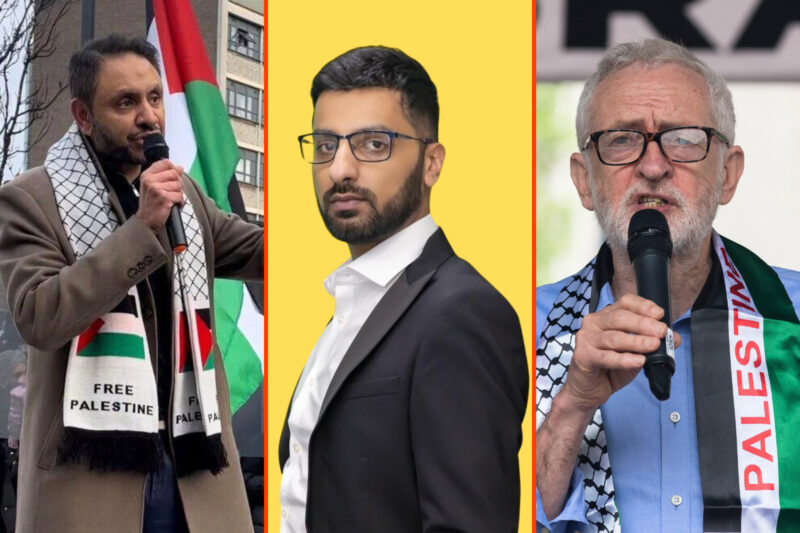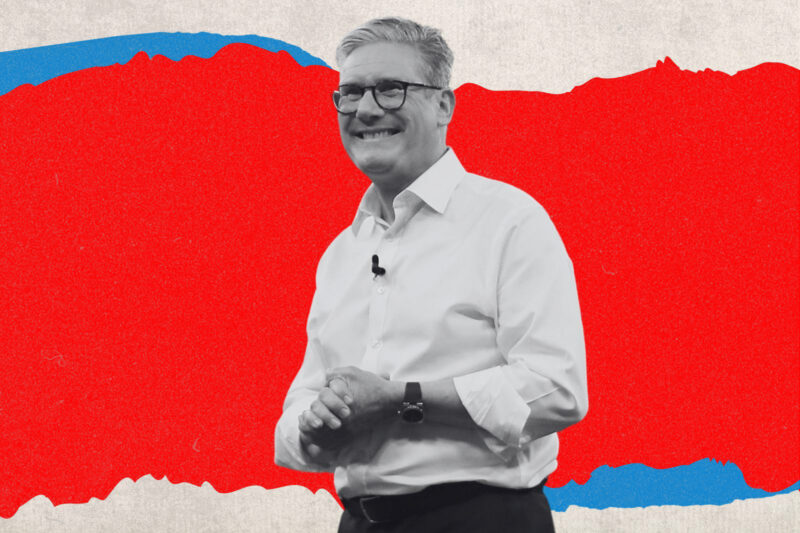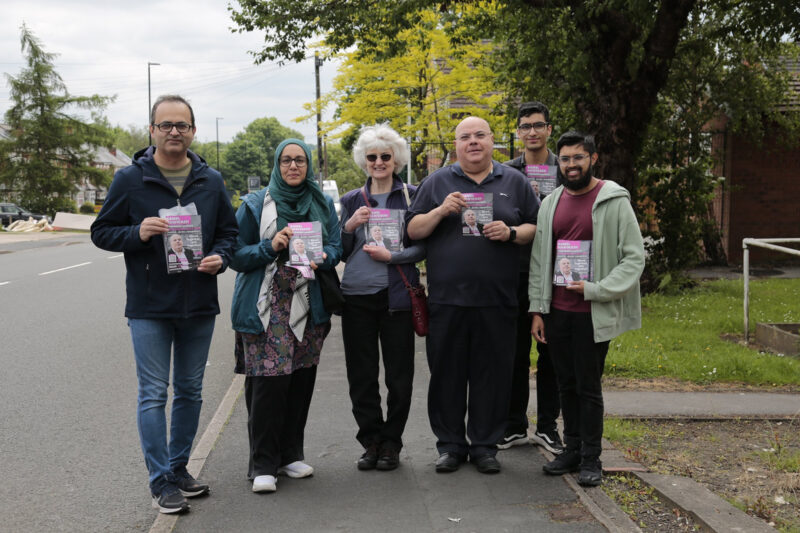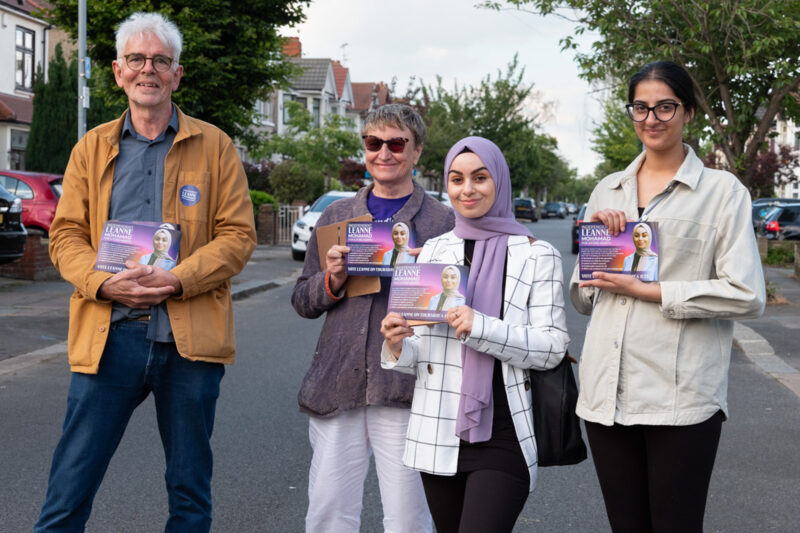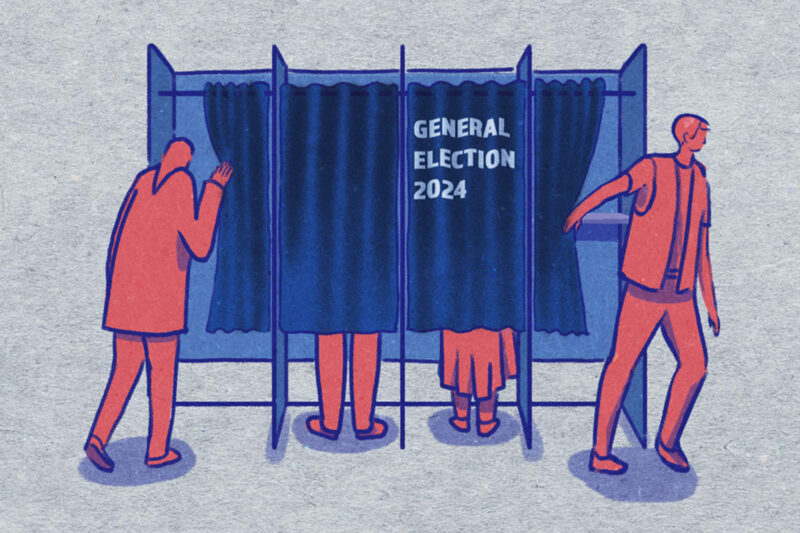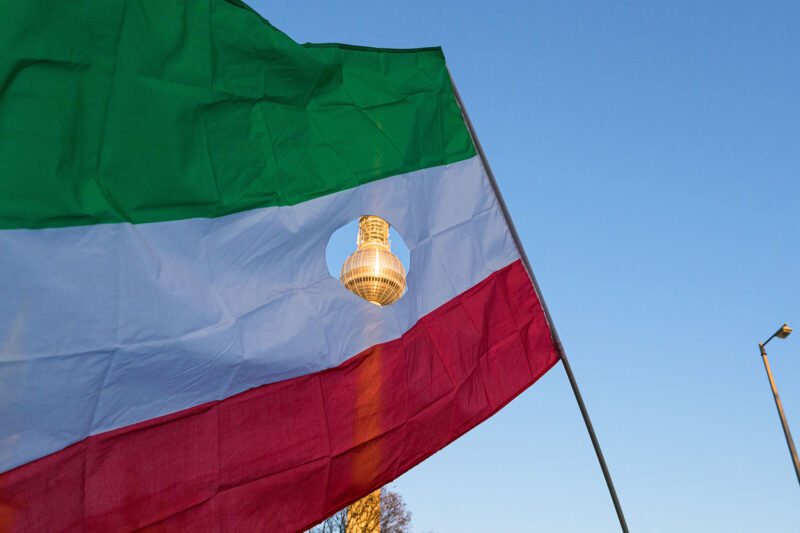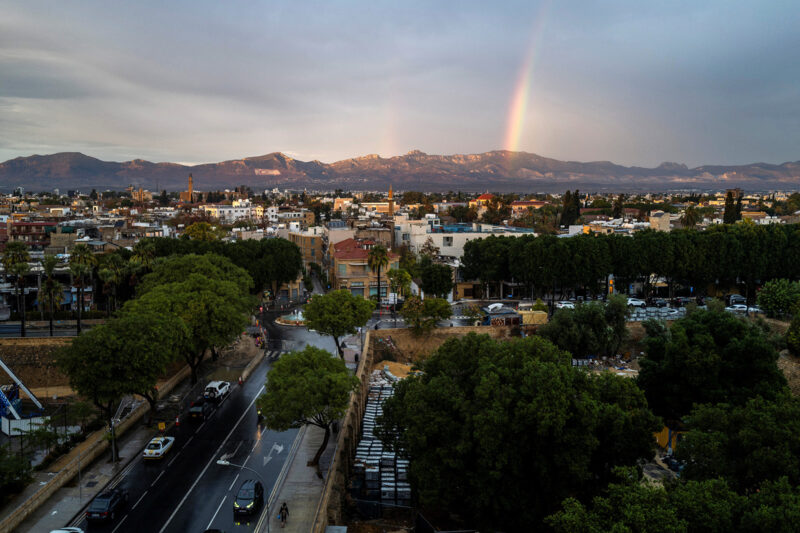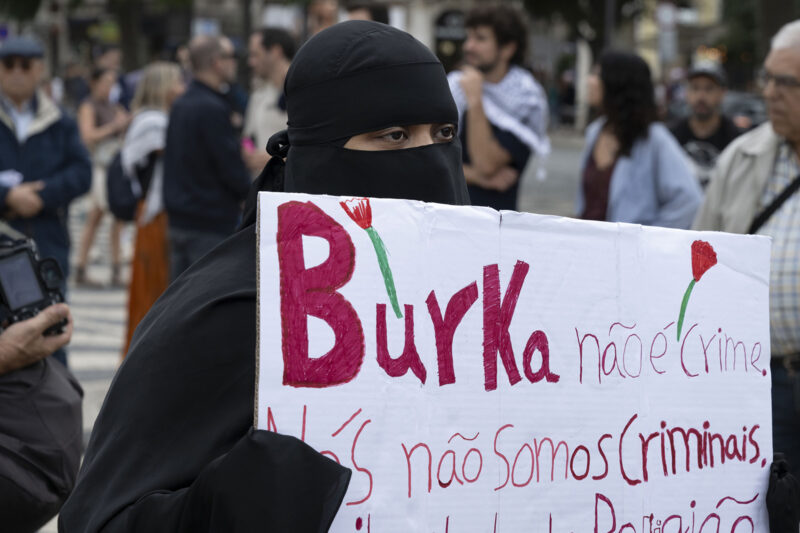‘Why are we a country of billionaires and food banks?’: Jeremy Corbyn talks Labour, Gaza and Islington North
Former Labour leader slams “cynical calculation” by party HQ that disaffected voters will still back Starmer as they have nowhere else to go
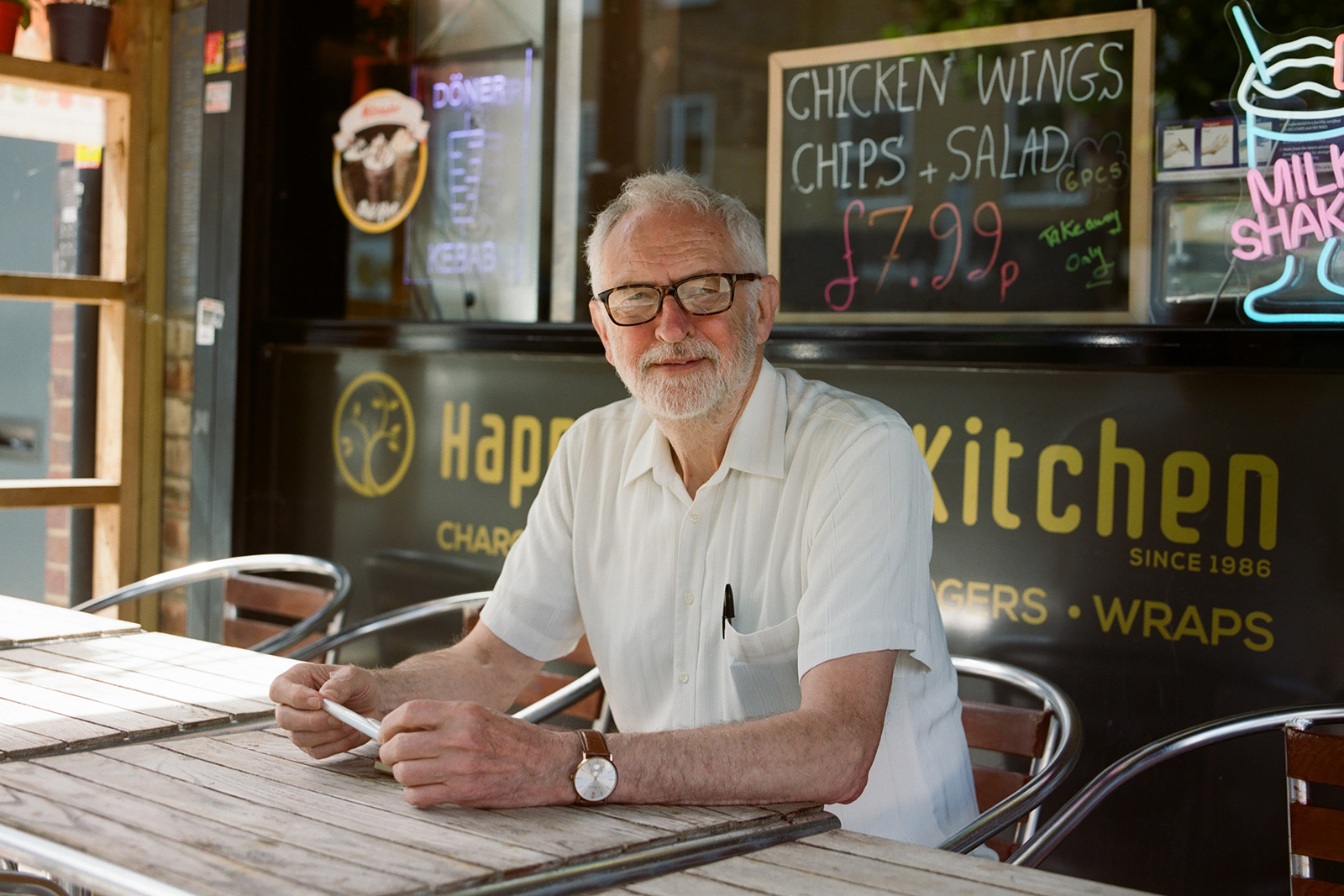
The message in the shop windows of Seven Sisters Road is clear: “Vote Corbyn.” Posters bearing the one-time Labour leader’s name are plastered over cafes, hairdressers and market stalls all along this hectic east-west artery of north London.
Less easy to find are adverts for any other local candidates in Islington North. Normally, that wouldn’t be surprising — this is Jeremy Corbyn’s heartland, and no one else has had a look in since he won the seat for Labour in 1983. But on 4 July, Corbyn and Labour — once synonymous — will go head to head.
“We’ve got volunteers coming in from the local community in far greater numbers than ever came in for Labour campaigns,” says Corbyn of his election machine. “We’ve also got people coming from all over. There’s a group come in this morning from south Wales, and we’ve had groups from Scotland, from Ireland.”
Yet the campaign’s key message is passing some people by, among them Corbyn’s biggest fans.
In a snooker club near the junction with Holloway Road, Corbyn and the owner smile out of a photo frame. Below them is a plaque engraved with a message of support. The owner’s son, however, is not aware Corbyn is no longer in the Labour Party and is standing as an independent candidate. He has no idea who Praful Nargund — the new Labour candidate — is. Labour party posters could make both of these things clear. But, as of earlier this week, there aren’t any.
Corbyn goes into the election with a majority of 26,000. But so does his former party — whose candidate, Nargund, is a 33-year-old private health entrepreneur, selected by the National Executive Committee (NEC) with no involvement from local Labour members.
“A shortlist of one,” Corbyn tells Hyphen in a cafe near his constituency office. “You can’t get smaller than that. And nobody in Islington North nominated, chose, voted for or had any say in that.”
Labour suspended Corbyn in October 2020 for saying the scale of antisemitism in the party under his leadership had been “dramatically overstated for political reasons”. He says he was “denied the right to even be considered as a potential candidate” in this election, as well as being “denied the right of appeal”.
So how is he feeling about what looks almost certain to be a Labour government?
“Well it couldn’t be worse [than the Conservative government],” he says. “I hope there will be change on disability benefits, I hope there will be change on the NHS. But I hope that change is about public participation.”
Shadow health secretary Wes Streeting has said Labour would use the private sector as a means of cutting the health service’s groaning backlog, though he has vowed not to privatise the NHS. Corbyn isn’t convinced it’s the right move.
“If there is a shortage of capacity in the NHS, which there is, then surely a bold and sensible government would say: ‘Well, there are these private hospitals: most of them are not full. Let’s take them over and make them part of the NHS,’” he says. “That was done in Scotland. It can be done.”
Addressing Labour’s campaign more broadly, he warns: “If people elect a government because they don’t like the other ones, well, it gets you so far — it gets you into office — but it doesn’t necessarily get you the social changes you need. And I think that is the danger.”
He believes Starmer and his shadow cabinet colleagues have “boxed themselves in economically”, when what’s needed is a rebalancing.
“We’re a country of more billionaires than ever, and more poor than ever,” he adds. “Why are we a country of billionaires and food banks?”
He says that, should he be elected for an 11th time on 4 July, he would support a Labour government that introduces good policies, and vows to be its “number one critic” when it doesn’t.
He still, of course, has plenty of friends in the party — maybe more than he knew. He reveals that, after he announced he would stand as an independent, “lots of Labour MPs” wished him good luck in the corridors of Westminster.
“People that I didn’t necessarily politically agree with,” he says. “Centrists saying: ‘It’s not right, the way you’ve been treated’. Pity a few more of them didn’t say it publicly, but there we are.”
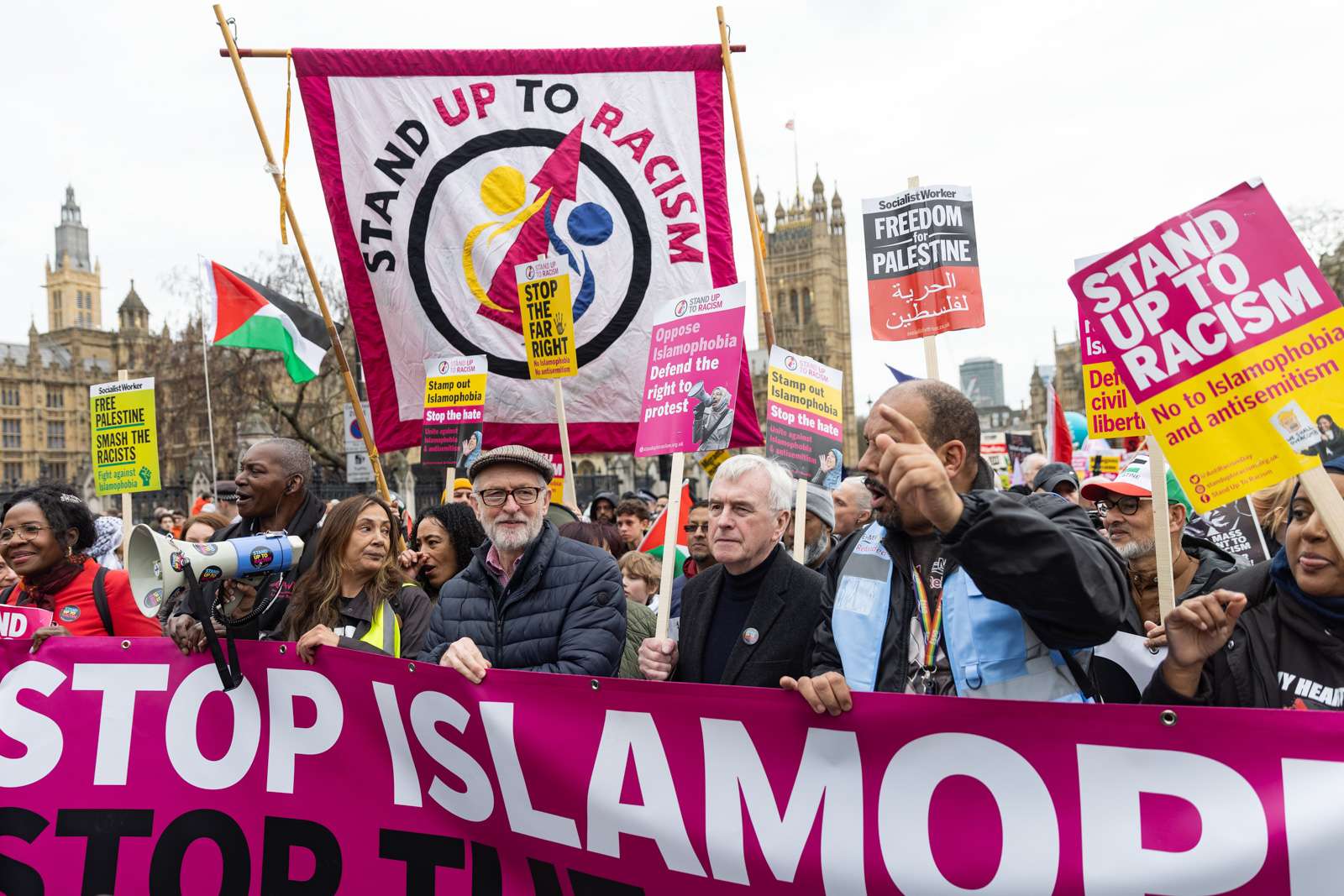
A similar controversy surrounding Labour’s candidate selections dominated the early weeks of the election campaign.
The party was accused of purging left-wing candidates after the election was called. Brighton Kemptown MP Lloyd Russell-Moyle was blocked from standing after a complaint was made, and Chingford and Woodford Green candidate Faiza Shaheen was deselected over her historic social media activity.
Corbyn’s old ally Diane Abbott just about clung on after protests from her supporters. “Big it up to them,” he says with a smile. “They fought a doughty battle and eventually won it.”
But he says the treatment of Shaheen, who was out campaigning with her newborn baby when news broke that she would not be allowed to stand as a Labour candidate, was “outrageous”.
Shaheen, now standing as an independent after quitting the party altogether, has accused Labour of a “systematic campaign of racism, Islamophobia and bullying”.
Such accusations have intensified since the 2022 Forde report found there was a “hierarchy of racism” within the party, with anti-Black racism and Islamophobia not taken as seriously as antisemitism.
A member of Labour’s NEC also accused the leadership of “gaslighting Muslims” over its stance on Gaza in the wake of the 7 October attacks by Hamas, and Israel’s subsequent bombardment. The party has also lost around 100 councillors over the issue.
Does Corbyn think the party is Islamophobic?
“I think they do have a problem in understanding diversity within the party,” he says. “And also the ideas of a hierarchy of racism. There is no hierarchy of racism. Antisemitism, Islamophobia, anti-Black racism — it’s all equally wrong.”
Whether or not Labour wins in two weeks’ time, Corbyn hopes the diminished left wing of the party will “assert themselves on issues of social justice — on workers’ rights, on public ownership, on Gaza”. He also hopes to work with them.
Labour has pledged in its manifesto to recognise a Palestinian state “as a contribution to a renewed peace process which results in a two-state solution”.
Corbyn, a lifelong pro-Palestine activist who pledged to recognise its statehood immediately in his two manifestos while leader, believes this is “still inadequate”.
“We have to have a recognition of Palestine as a deliberate decision, a unilateral act,” he says. “The majority of the world’s nations have recognised Palestine. It’s only some European countries and the USA that don’t.”
He also says the UK is complicit in the bombardment of Gaza by the sale of arms and has called for the suspension of all export licences. On this he is aligned with the Liberal Democrats and the Greens, but not Labour.
For many, the destruction in Gaza is the defining moral issue of our time. Labour’s stance, as well as its treatment of left-wing candidates, has led to accusations it is taking voters for granted.
Polling conducted for Hyphen in late May and early June found that Israel-Palestine was the biggest single issue for Muslim voters this election. But support for Labour remains relatively unchanged. Corbyn has a theory.
“A cynical calculation has been made, and [rehabilitated New Labour architect and now Starmer adviser] Peter Mandelson is the most cynical of all to make cynical calculations, that these people have got nowhere else to go,” he says. “Well, here they have.”
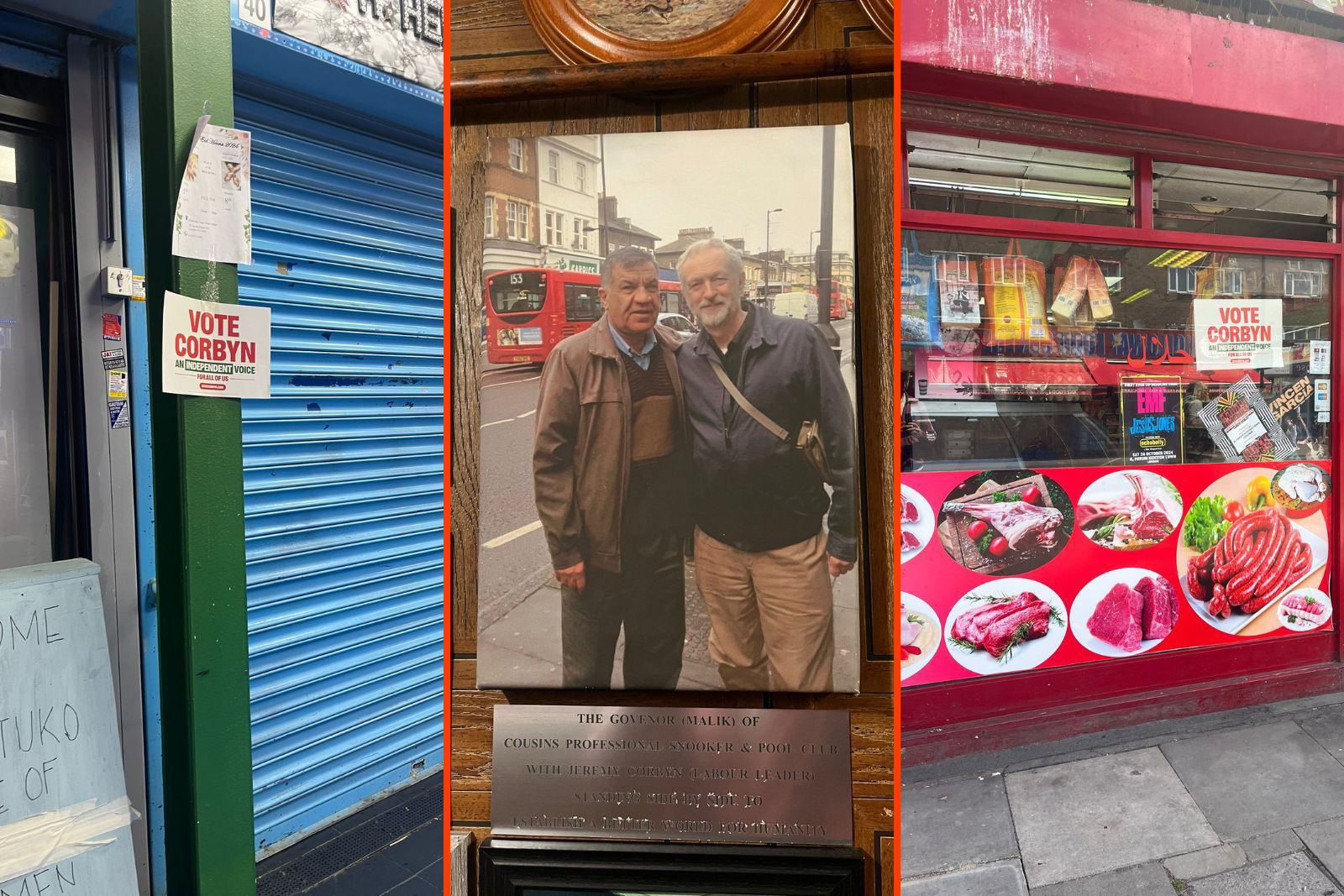
Corbyn also urged Labour to stand up to Nigel Farage’s Reform party when it comes to the subject of Britain’s borders.
“There is a real danger, mostly in Europe and North America but also elsewhere in the world, of a horrible form of authoritarianism and racism,” he says.
“And there’s a danger of appeasing these forces by saying: ‘Well, we understand your concerns.’ The numbers of people crossing the Channel by boat wouldn’t even fill a football stadium. They are just desperate people trying to seek a place of safety.
“What are we doing to these people who are trying to survive in the world? Making them into an enemy. There’s always a minority to blame. They always find a minority to blame.
“It is evil, what’s going on. And we have to unite people.”
Well before the election was called, people had been urging Corbyn to set up a new party, and he says the thought did occur to him. But he believes it’s more important for grassroots activism to be represented in parliament. To this end, he has pledged to hold a monthly “popular assembly” in the community to discuss local issues should he be elected.
“It’s not me going into parliament to go off and do stuff on my own,” he adds. “It’s me being accountable to the local community.”
And if any MP is accountable to the local community, it’s him. He arrives late for our interview after being stopped by people on the street. He then halts our photoshoot to disappear into his constituency office with a member of the public who has pitched up and asked him for help.
Corbyn has, after all, been doing this for 41 years. But he knows he has a battle on his hands. Hours after we speak, an Ipsos projection has Nargund winning the seat — though Ipsos itself has warned against putting “too much weight on individual seat estimates”. And, as well as people not knowing he is no longer a Labour candidate, Corbyn is running a DIY campaign. “We have no data,” he says. “We’ve only got my memory.”
So what if the poll is right and his four decades as MP for Islington North come to an end?
Corbyn won’t be pushed on whether he would fight another election. But, he vows: “I’ll always be that person campaigning on social justice — on ending the two-child cap, on environmental sustainability, on peace — whatever. That’s my life.”
Corbyn — in his own words
On the rise of the far-right:
“Seventy million people are refugees through no fault of their own, and 25,000 people have already died in the Mediterranean in this decade. Horrific. Some have died in the English channel as well.
“The Nazis found a minority. They blamed all the failings of the Weimar republic on the Jewish people. Others do the same now to the refugees. It is evil, what’s going on. And we have to unite people — yes, against racism, but also to give a generation of people real hope of how they can live in this world.”
On Labour parachuting candidates into constituencies:
“This election is not a surprise. Everybody knew it was coming this year. They’ve had four years to put all candidates in place. Why wasn’t it done earlier? Islington North, despite requesting for the last two years, three years perhaps, the right to open the selection process, were met with absolute silence. They wouldn’t even reply to letters or emails from the local party.”
On the deselection of Faiza Shaheen:
“It’s appalling. Faiza was selected in 2018, I think, after a full democratic process. She ran a brilliant campaign in 2019 and nearly won it. I was there with her, campaigning with her on benefits, universal credit and so on.
“She was then selected again by the local party, overwhelmingly, in an open, democratic process — and then removed. It’s outrageous. And she is very able, very intelligent — the kind of person you’d be proud to have in parliament. She was forced out in a horrible process and then that disgraceful so-called interview. Having a baby is a big stress. The treatment of her has been appalling. I wish her well.”
On Labour’s plans to expand the use of the private sector in the NHS:
“[Wes] Streeting has said all along that the problems in the NHS can be dealt with by more use of the private sector. The profits made out of the NHS every year by the private sector run into the billions. We’ve got to change it. They’re just ripping us off. The danger is the NHS becomes, instead of a service of universal choice for all of us, a health service of last resort.”
On Gaza:
“I’ve been in Gaza a lot over the years. I remember going to a primary school in the north, near Jabalia refugee camp, and they read me the poems they’d written and showed me round their school. And you think: what is the future for them? They’re going to be here in the Gaza Strip — power failure, unemployment, polluted water.
“The school could look and see the lights of [Israeli city] Ashkelon — could see the fence — where they cannot go. What does that do to people’s psyche? Imagine you and I wanted to go to the Angel in Islington now and we had to pass three checkpoints on the way, just to go to a shop.
“It’s an incredibly well-informed and committed population. There are more graduates per head in the population of Gaza than almost anywhere else in the world. At the same time… the young people can only watch the world vicariously through a computer screen.
“I was there for the election in 2006, in Gaza, a really weird experience. I remember having to go through [a checkpoint] to get to a polling station. We were all stopped and searched and there was one Palestinian man wearing a traditional robe and he was told to stand in the middle of the road, loudspeakers instructing him, on his own, to undress down to his underpants. Humiliation of people in their own society.”
 Newsletter
Newsletter


